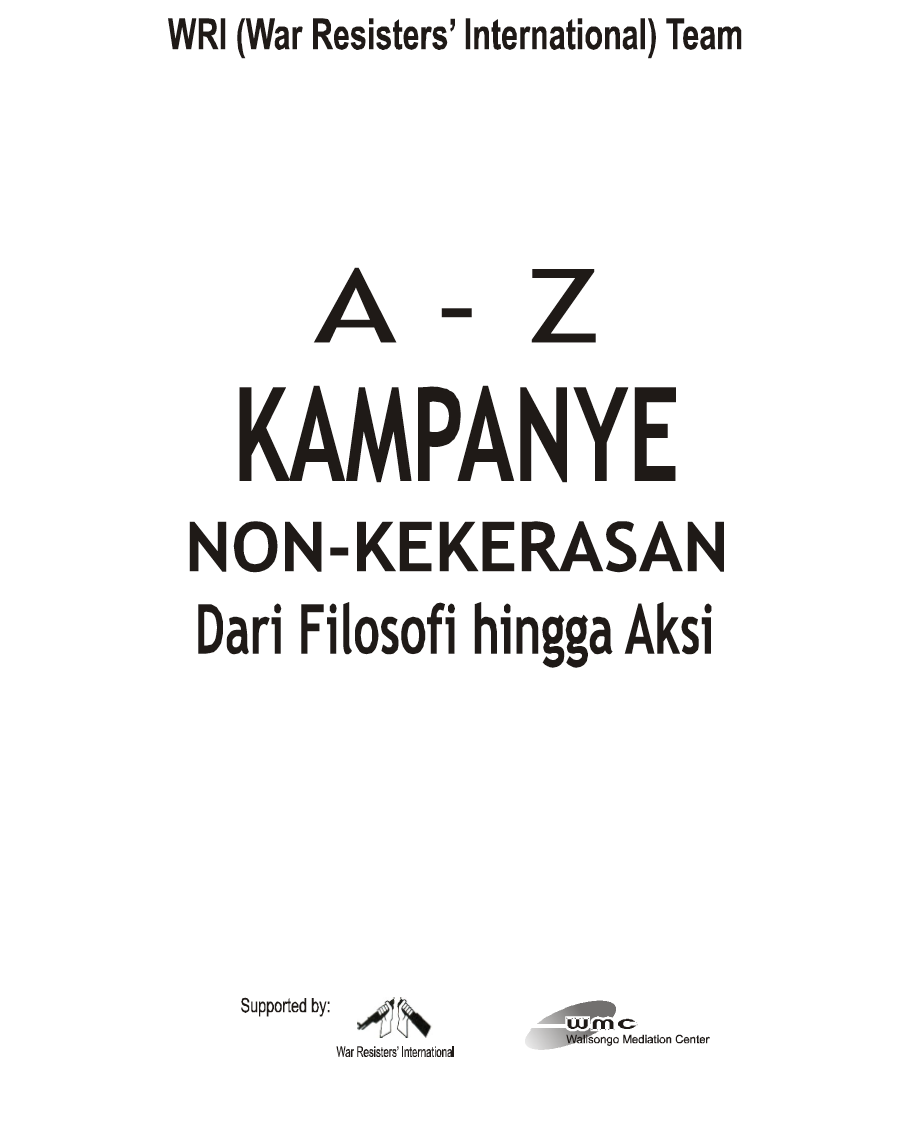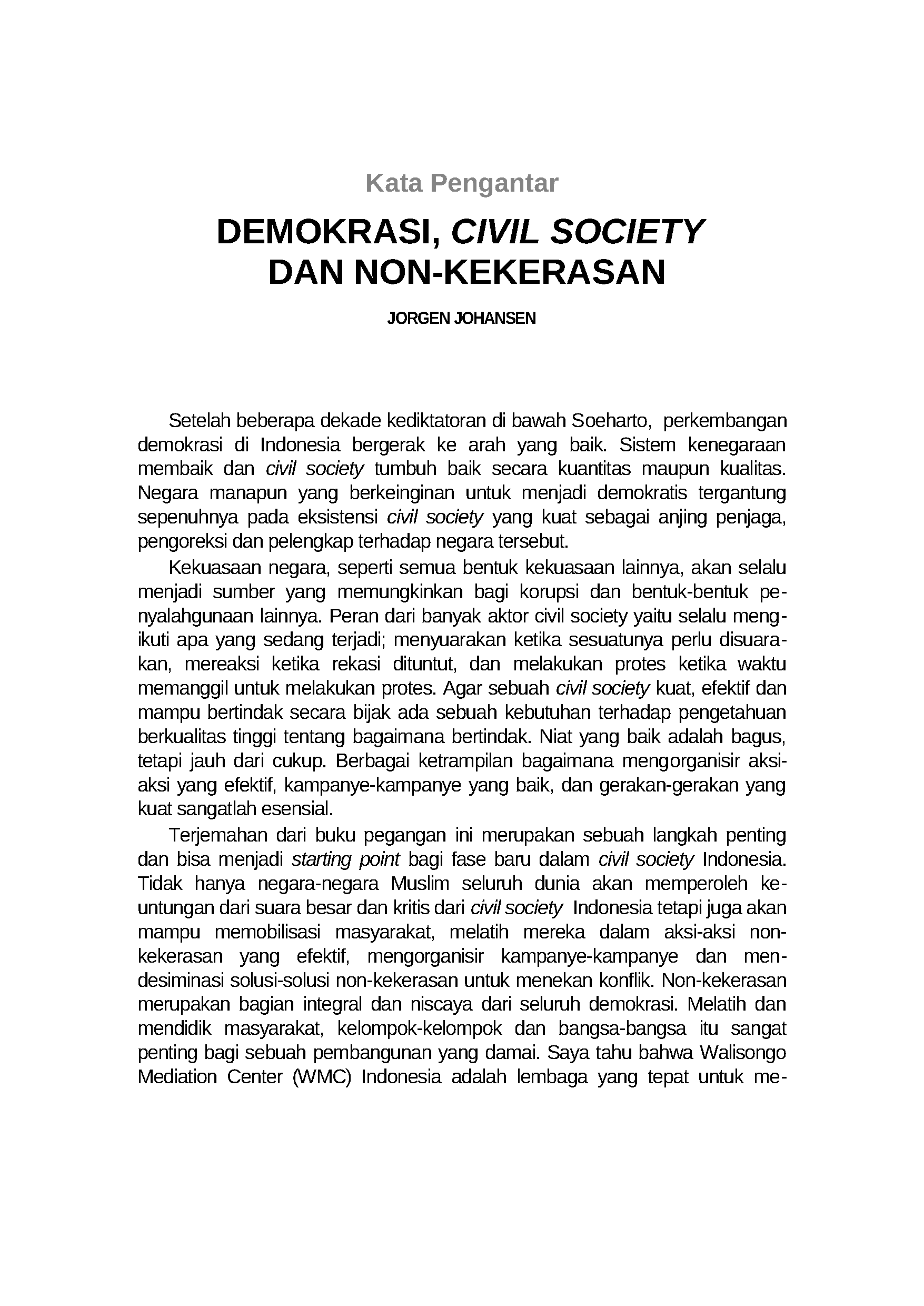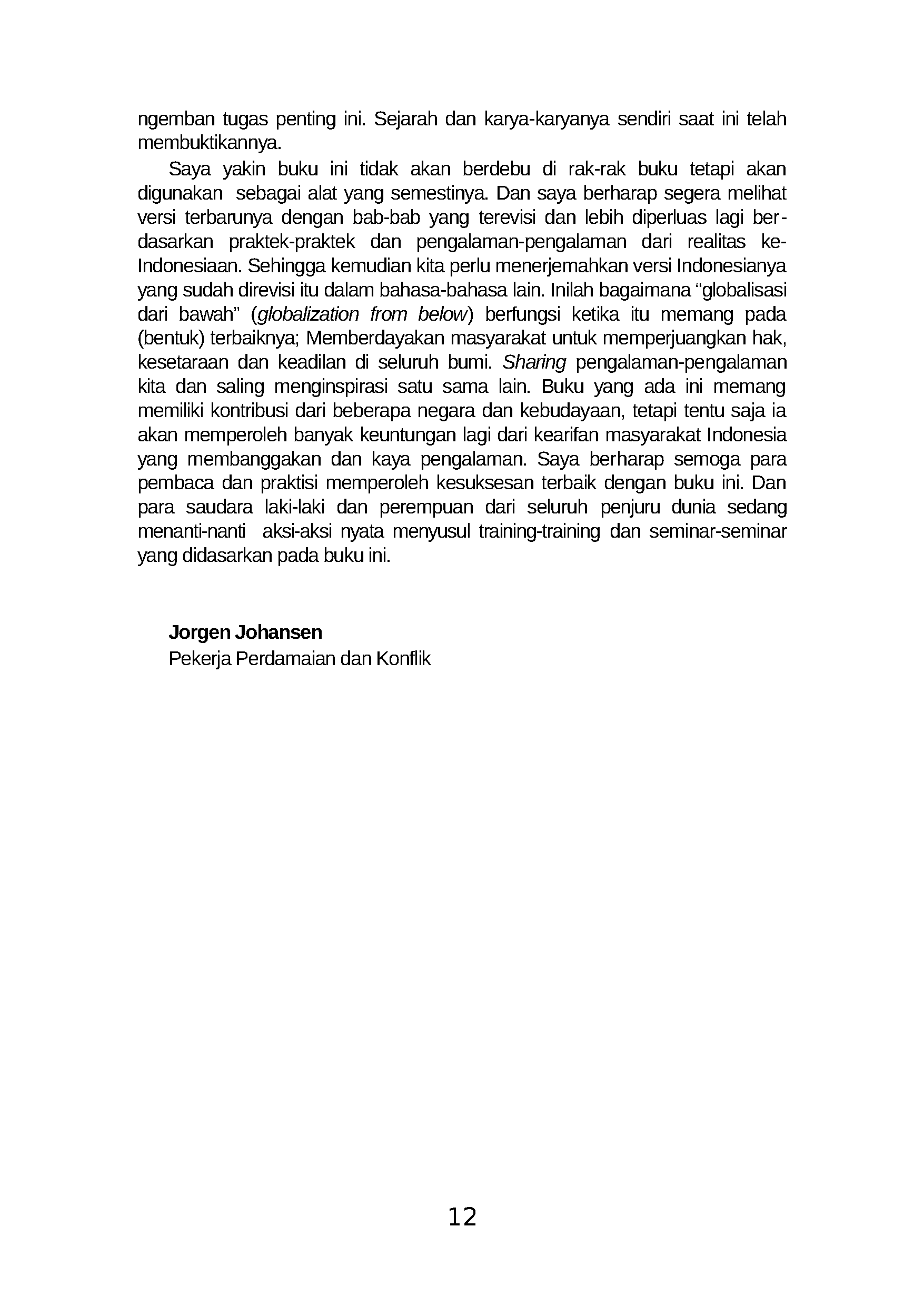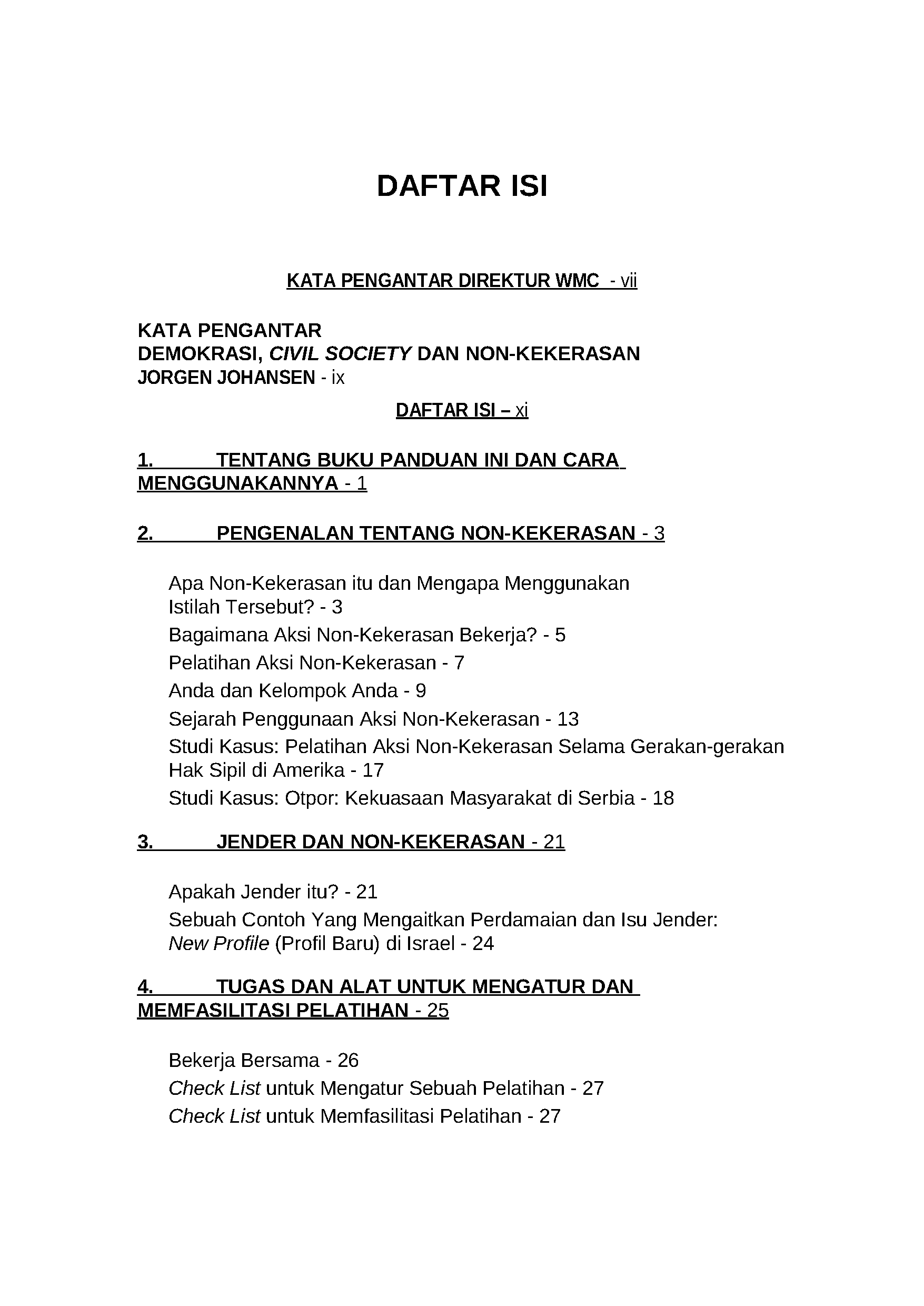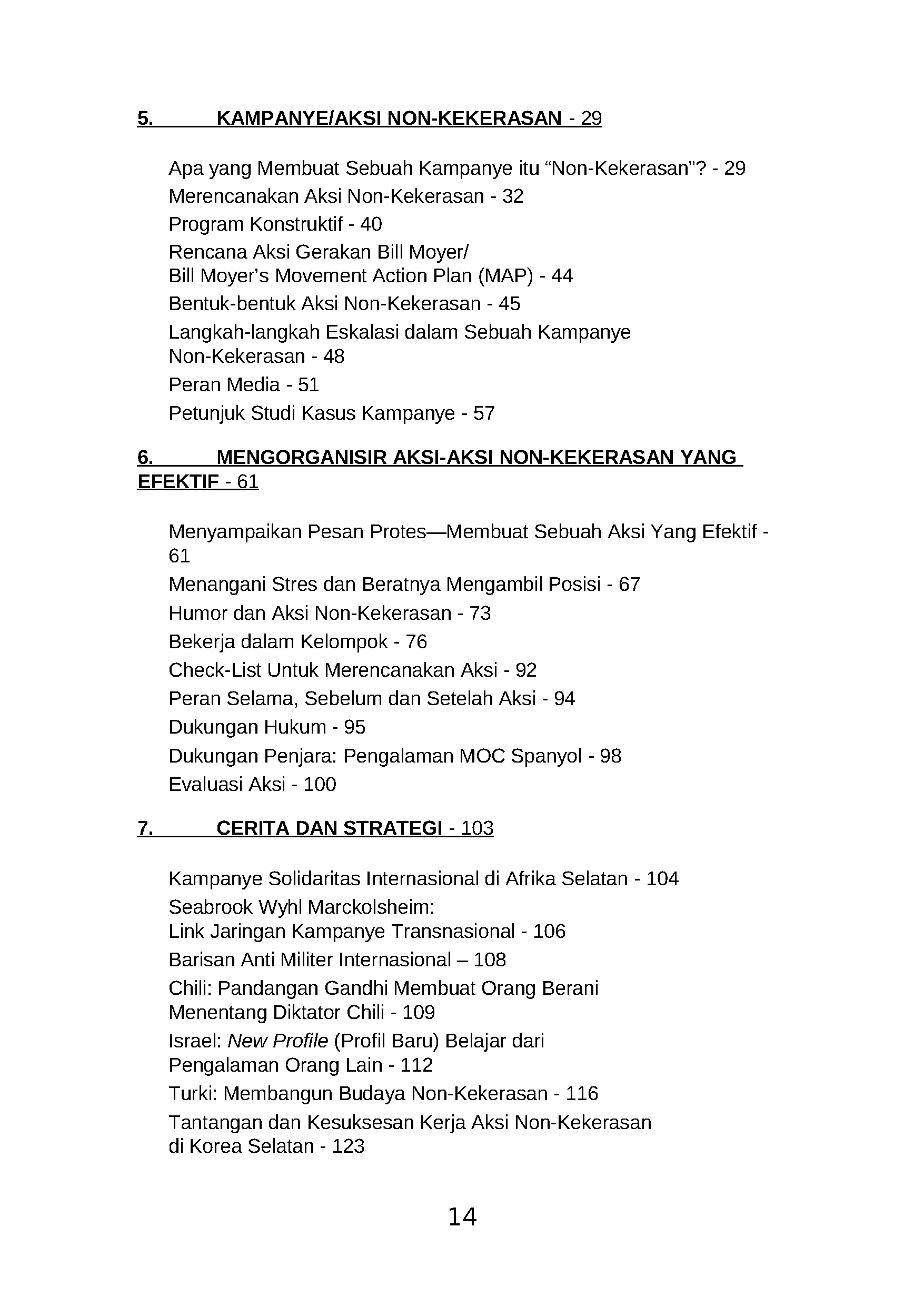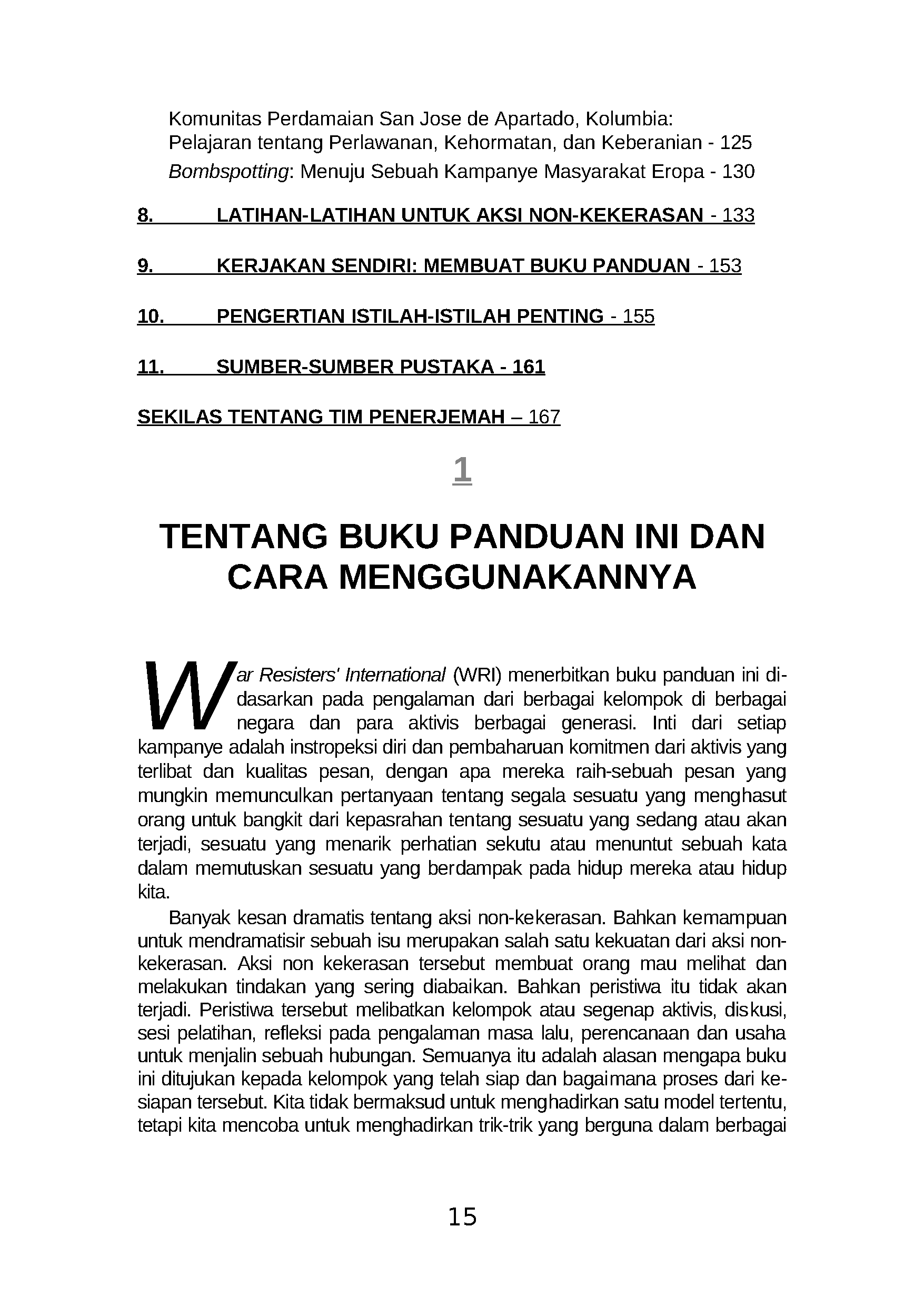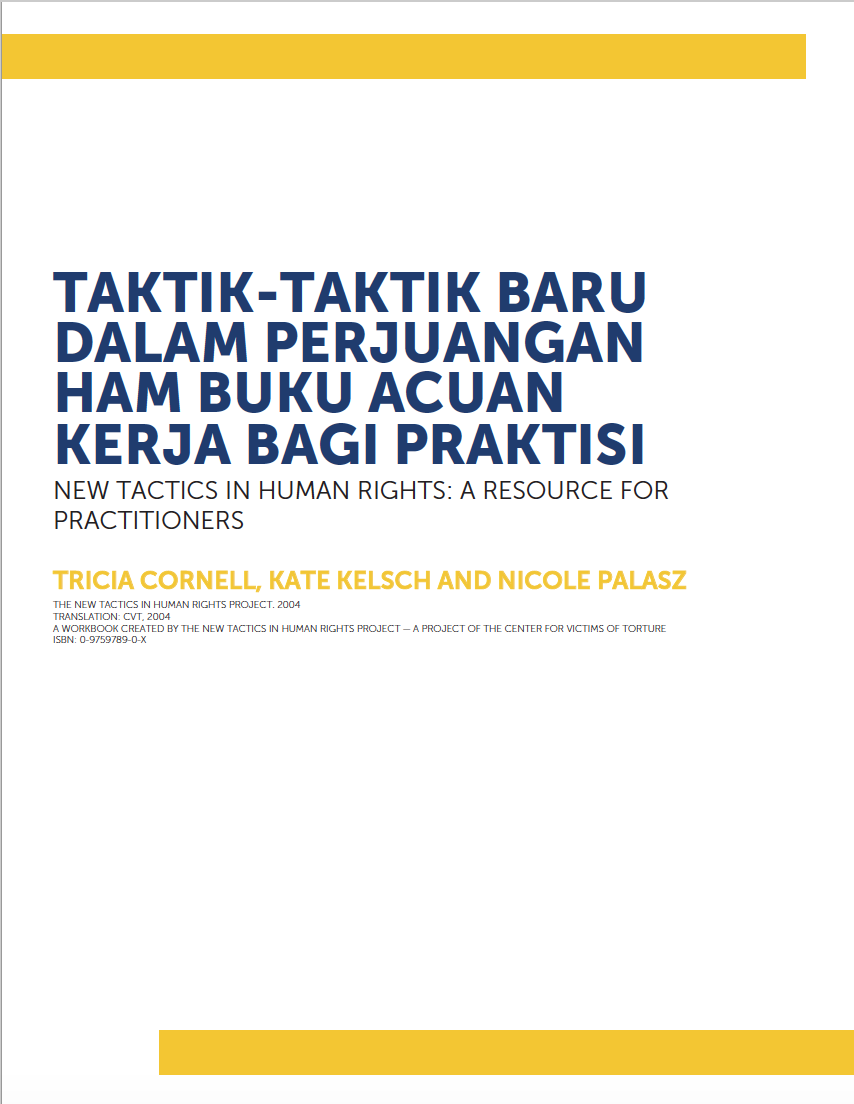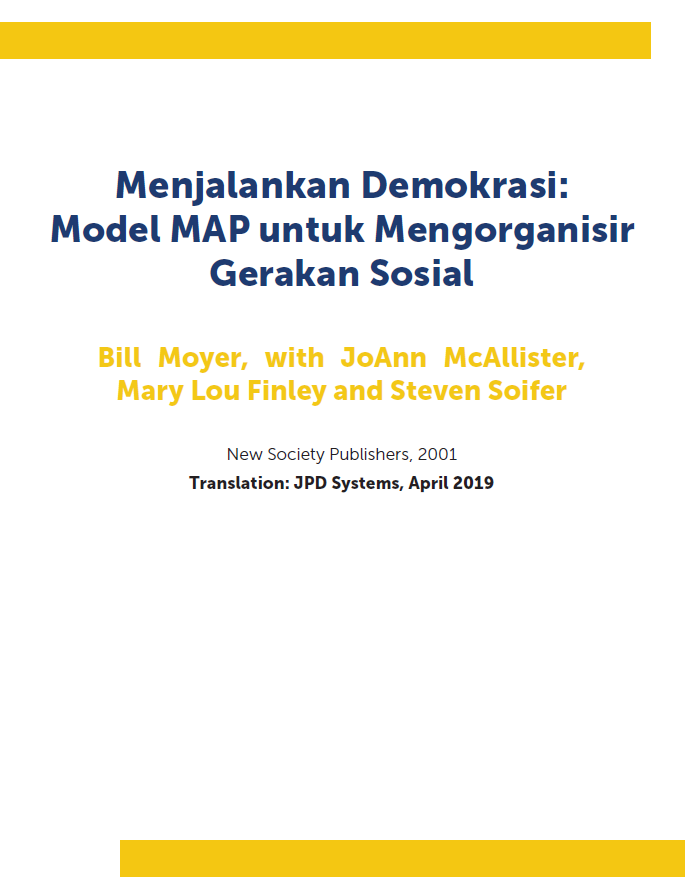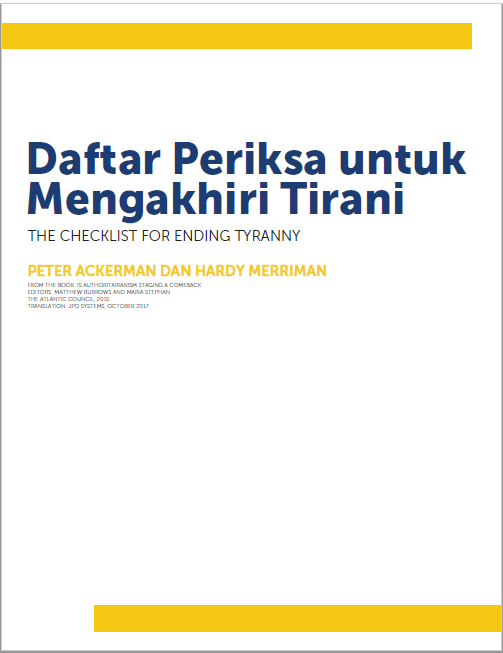Kampanye Nonkekerasan
Social change doesn’t just happen. It’s the result of the work of committed people striving for a world of justice and peace. The work gestates in groups or cells of activists, in discussions, in training sessions, in reflecting on previous experiences, in planning, in experimenting and in learning from others. Preparing ourselves for our work for social justice is key to its success.
This Handbook shares what people have already developed in different contexts. It includes sections on:
• developing strategic nonviolent campaigns
• preparing for effective nonviolent actions (complete with checklist)
• exercises for working in nonviolence (including group dynamics and gender issues)
• stories and strategies both showing the use of nonviolent organising tools in specific settings and describing global campaigns.
There is no definitive recipe for successful nonviolent actions and campaigns. This handbook, however, is a series of resources that can inspire and support your own work, especially if you adapt the resources to your own needs and context. This handbook has been a collaborative effort of people working in nonviolence within the WRI network from Australia, Belgium, Britain, Colombia, Chile, Germany, Italy, Israel, South Korea, Scandinavia, Spain, Turkey, and the USA.
First Edition- 2009
War Resisters’ International, 2014
Translation: War Resisters’ International, Musahadi HAM (translator), August 2009
ISBN: 978-0-903517-21-8
